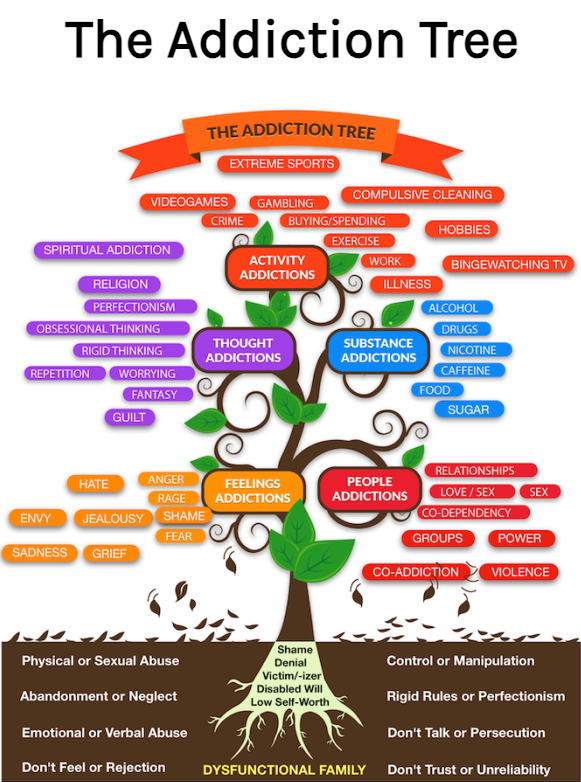Being flippant over sensitive topics? 😳
To be flippant is to not be serious about a serious subject in an attempt to be funny or clever.
For example, someone being flippant about bullying, posted about some of the people who lead household-name companies, saying that those companies wouldn’t exist if they hadn’t been bullied.
After years spent healing my childhood trauma, I found the gifts of the experience: resilience, independence, determination, flexibility, creativity, etc. So, I understood the attempt to connect bullying with the skills required to succeed in business at that level, but the flippancy dismissed the long-term impact of bullying.
The flippancy grated.
Flippant about bullying
Bullying takes many forms and can include physical assault, teasing, making threats, name calling and cyberbullying.
The post took me straight back to a time when I was relentlessly teased for not wearing a bra by friends of a school friend. I bloomed late; what breasts I did develop, appeared at 15. Trying to stop the bullying, I went bra shopping only to be told, ‘They don’t come that small.’ I was crushed and humiliated; I still hate bra shopping.
It took 15 years to overcome the insecurity and self-consciousness created by the years of teasing; they will have long forgotten about it. Relief came when I went backpacking and saw reasons to be grateful for a small perky set! Today, I reflect on it differently, because I know the person who didn’t stop her friends from humiliating me did so to deflect from her own flat chest. If only I’d understood that then because how their words damaged.
Long-term harm
The post dismissed the long-term impact on the victim, who may well succeed in business but that drive to ‘win at all costs’ often masks a deep shame or low self-worth wound; a work addiction used to numb and avoid the self-work required to heal.
Musk, one of those mentioned, is so flippant with his remarks online, that he incites the far right. I see a man projecting his self-hatred at every opportunity to his 200M followers. A rich man so others place him on a pedestal but deeply unhappy; a billionaire with a gaping void inside of him. You only need to scan reviews and the news to know how poorly he treats anyone working in his companies, too.
I suspected he was bullied and had a traumatic childhood, and a brief online search confirmed it: ‘As a child, Musk was relentlessly bullied, physically and mentally, and was sent to a wilderness camp which was like a “paramilitary Lord of the Flies”. After his parents split, he went to live with his dad in Pretoria which he regretted. “He was lonely . . . he used his psychological ways on me. It turned out to be a really bad idea,” says Musk.’
In the addiction tree below, under Activity Addictions, you will see Work. In the soil you will see emotional or verbal abuse and in the roots the wound it creates. The way Musk has been behaving online lately, shame and low self-worth appear to be in control.
Flippant projections of self-hate
I called my memoir The Damage of Words because Mum wielded words as weapons but also because of what is happening to people online.
For example, the carelessness of remarks that create devastating consequences:
-
Transphobic JKR was flippant when tweeting a falsehood to her 14M followers that led to my friend receiving a torrent of thousands upon thousands of hate-filled messages. In 2020 JKR admitted to struggling with severe OCD as a teenager and said her father openly expressed that he wished she had been a son. Obsessional thinking is in the Thought Addictions on the tree.
-
Olympian Champion Imane Khelif, at what should have been a time of elation, being inundated with online abuse, which escalated after high-profile figures including Musk and Rowling posted about her. That one is headed to trial. Do you think they’ll just say they were being flippant?
-
45’s flippant ‘eating dogs’ comment, has led to the American Haitian community being subject to bullying, assaults and intimidation in front of their homes amid racist rhetoric amplified by social media. (45’s inexcusable bullying behaviour also comes from child abuse.)
And that’s before considering the riots both 45 and Musk have incited, and a thousand more examples from flippant tweets and remarks.
Due to my self-work and healing, I often see in people’s behaviour the shame wound and projected self-hate. However, it does not negate vile and irresponsible behaviour, especially when it makes millions of others think they too can project self-hate without consequence. I wish people who treat other people so abysmally were not idolised; I wish that witnessing their behaviour motivated people to heal their stuff instead!
Flippant about the connection to suicide
Because the author of the post feels there is insufficient evidence connecting bullying directly to suicide, they felt it ok to dismiss the concern of those who replied as ‘taking it off-topic’.
Sure, the majority of children and teens who are bullied do not engage in life-threatening behaviours. However, a Yale University study found that ‘bullying targets are between 2 to 9 times more likely to consider suicide than non-targets’ and for every single suicide, there are 100 attempts. Research as far back as 2010 also found, ‘Nearly half of suicides among 10 to 14-year-olds are due to bullying.’
As someone who grew up in the ripple created by suicide, and with suicide rates and self-harm increasing and bullying seen as a contributing factor, using flippancy is thoughtless.
Today, most communication is in toneless black-and-white text, making it crucial to consider the consequences of our words.
Flippancy is rarely wise in a public post on any sensitive topic because you simply don’t know the impact of those words, they could be devastating.
💛

